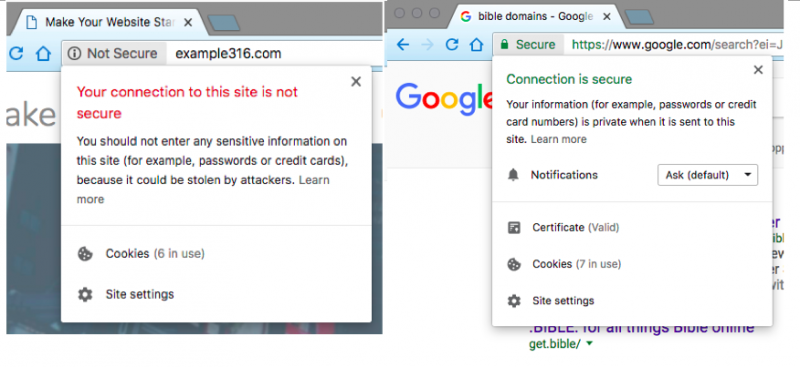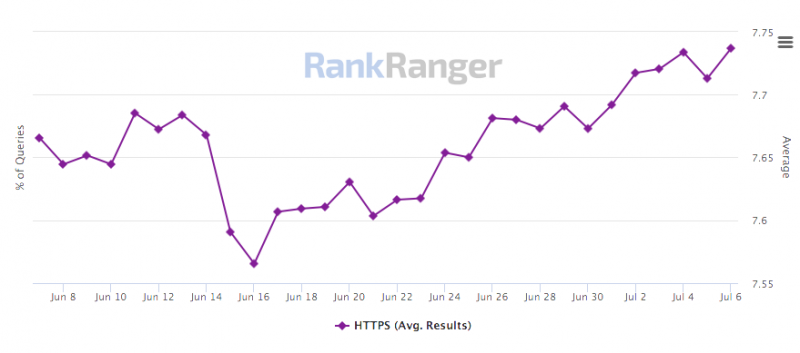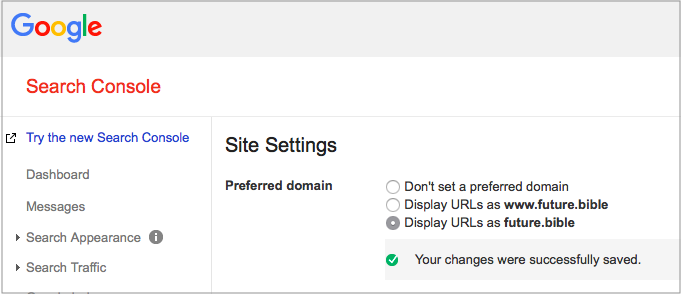Can you maintain your site optimization going from HTTP to HTTPS?
Many webmasters, marketers, and organizations are thinking about changing the protocol of their websites from HTTP to HTTPS. This is not an easy change, involving 28 steps or more, depending on a website's configuration. But if a site collects sensitive information or plans to conduct transactions, it would be wise to consider.
What is the difference between HTTP and HTTPS?
This difference is most noticeable by Google Chrome users, currently the most popular web browser. Chrome displays a site's security status in its URL address bar, whether a website is "Not Secure" or "Secure." Of course, users instinctively prefer websites that are secure over those that are not secure. These 2 screenshots show the different address bar displays with an explanation of each security status.

Why Change to HTTPS?
Websites with a HTTPS secure connection improve the user experience with added assurance and gives them confidence while they search the site. Also, research has shown that 50% of page one search results are HTTPS, and it's now hovering around 75% to 77%.

How to Tell Google Search Console about Moving from HTTP to HTTPS
While there are many steps to updating a site's security protocol, one of the most important consideration is how the change will affect the search engine optimization (SEO) of your website. The assumption is this: your current website using HTTP has attained good rankings for your keywords. You'd want to know how to change to HTTPS without losing all the good "link juice" you've already collected.
Unfortunately, there's no easy answer to ensuring that your site's ranking will not be negatively affected. Google provides its best information about migrating from HTTP to HTTPS at its support page, Overview: Site Moves with URL Changes.
However, what adds to the confusion is that some Google support pages say, yes, going from HTTP to HTTPS is a site move; and another page noted that their change of address tool does not currently support protocol changes (from HTTP to HTTPS). Maybe some of these pages are out of date.
Google more clearly notes this, "Do not submit a change of address if you are only moving your site from HTTP to HTTPS."
This is the short checklist of what to do in Google Search Console:
- Add all 4 variants of your site's URLs (http://future.bible, http://www.future.bible,https://future.bible,https://www.future.bible) and verify them
- Set one of these URLs as canonical and the preferred URL, i.e. https://future.bible
- Configure your website's 301 redirects, so that the other 3 variants will automatically go to the canonical URL, and test them with Fetch as Google
- Add a Sitemap for the canonical URL
- Associate the canonical URL with Google Analytics
In other words, Google knows about your URL change from your final setting of the URL that is canonical and preferred.

Manage Your SEO Expectations
While your team keeps an eye by monitoring the migration of your site URLs and how Google crawls and ranks its content, use this reference to solve SEO problems with HTTPS migration.
Google notes, "As a general rule, a medium-sized website can take a few weeks for most pages to move, and larger sites take longer." and "visibility of your content in web search may fluctuate temporarily during the move. This is normal and a site’s rankings will settle down over time."
Any other tips you'd add? How was your experience with moving a site from HTTP to HTTPS? Please add a comment.

